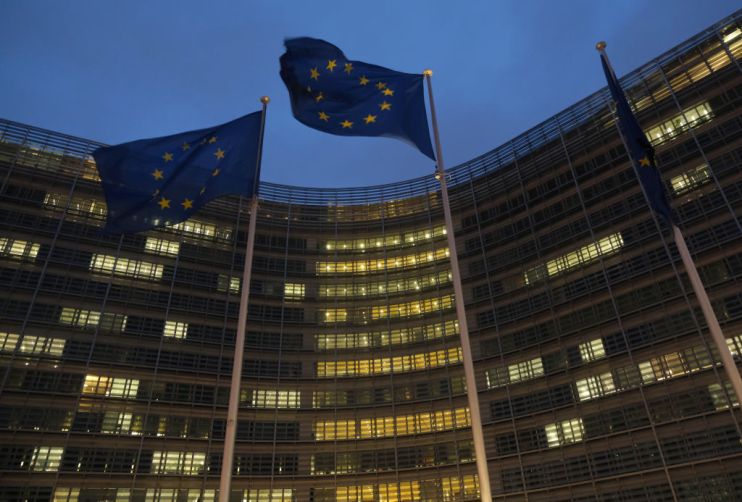Eurozone posts robust recovery — but forecast notes EU economy has ‘lost momentum’

The European Commission has downgraded its forecasts for growth across the eurozone this year and next as economic activity in the bloc stumbles in the face of higher borrowing costs.
In its new Autumn forecast, the Commission predicted that the currency union would grow 0.6 per cent in 2023, a downgrade on its previous forecast of 0.8 per cent.
Although the eurozone posted a robust recovery from the pandemic, the forecast noted the EU economy has “lost momentum”.
“The loss of growth momentum so far this year has been underpinned by the lack of a solid growth driver, with weakness especially in consumption but also on the external side. Private consumption broadly stagnated on aggregate, as nominal wage growth continued to lag behind inflation,” it said.
Across 2024, the eurozone is forecast to grow 1.3 per cent, a downward revision of 0.1 per cent on its summer forecast. Growth will pick up to 1.7 per cent the following year.
“Growth is expected to rebound mildly as consumption recovers with rising real wages, investment remains supportive and external demand picks up,” the Commission noted.
Figures out this week confirmed that GDP in the eurozone slipped into contraction in the third quarter of this year, meaning it stands on the cusp of a recession.
Slow growth has largely been brought about by an aggressive bout of monetary tightening from the European Central Bank. Although it left rates on hold in its latest meeting, interest rates across the eurozone stand at their highest level since the financial crisis.
However, higher rates have worked to bring down inflation, which currently stands at 2.9 per cent across the eurozone. The Commission’s latest forecasts suggest inflation will average 3.2 per cent next year.
The Commission noted that oil prices had risen only slightly since the Hamas attack on Israel, meaning oil prices futures were only slightly higher over the forecast period than in previous forecasts.
“The inflationary impulse from energy prices will be somewhat higher than previously expected in 2024 and broadly neutral in 2025,” it said.